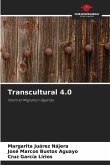The decision is the most important moment in interpersonal relations and in the life of an organisation or even a nation, because it determines, for better or worse, how we live together. It is a clash of two or more individual wills that seek to prevent the future by generalising the behaviour of its members. A good decision is the result of a process that brings together two individuals or several members of an organisation who, by pooling their rationality, decide on a common course of action to which they will adhere. In the context of a formal structure, the decision results in an enactment or a law. In this case, it becomes a will that commands other wills. In a situation where it is more or less easy to reach a consensus, a rational decision can be made without much difficulty. However, decision-making becomes complex when the positions of the actors involved are diametrically opposed. Reflecting on decision-making is at the heart of organisational management. For this reason, the leader plays an important role in this process.








